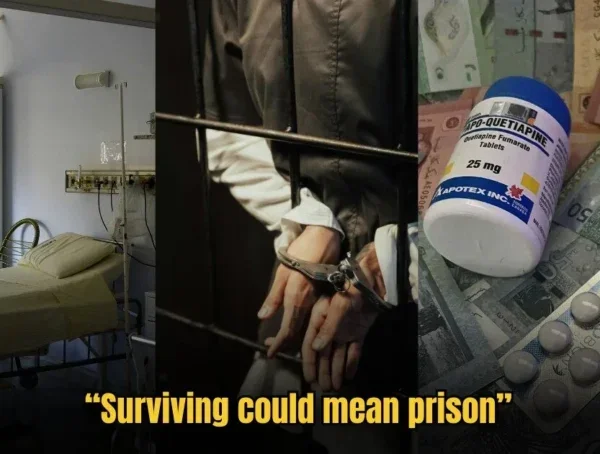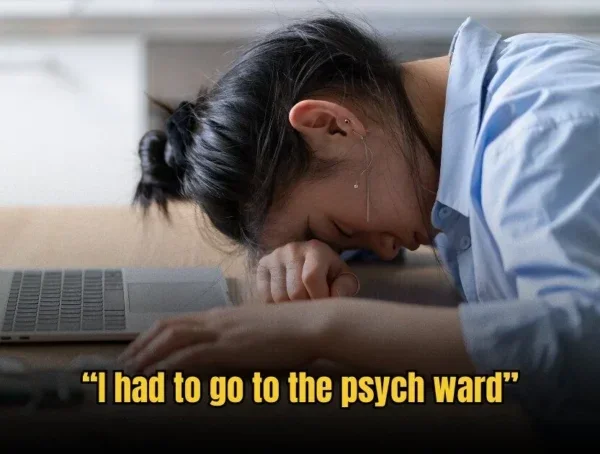Although almost 20 years has pass, I remember it so vividly until today.
I was a young probationary prefect in Form 4 and all the prefects were packed together in a large classroom for a meeting. My name was called and I had to stand up.
For a 16-year-old this was embarrassing and stressful. One by one, the high-ranking prefects at the front read out my faults. Not arriving on time for duties, not being able to control the class I was taking care of, and a whole lot of other things I can’t remember.
I felt crushed. For the life of me, I couldn’t remember doing any of the things I was accused of. I remember feeling like my soul had left my body. It was surreal. The senior prefect who had made all those accusations was sitting at the side with a smirk on her face. I couldn’t bring myself to meet her eyes.

I went home from the meeting and spent the rest of the day crying. I woke up the next morning and my eyes were so swollen, the senior prefect standing next to me at morning assembly asked me what happened. So I lied and said I stayed up late and didn’t get enough sleep.
If my story resonates with you, you’ve probably been publicly humiliated, shot down or scolded in public, just like me. This is even worse today with social media. You say one wrong thing, and the whole world is on your Facebook wall baying for your blood.
How do you survive it?
1. Temporary Shutdown
If you’ve been humiliated online, then this can be done by staying away from social media for a while. If you’ve been embarrassed in real life, you may want to avoid the person who inflicted the humiliation. It may be easier said than done, but you will need the space to breathe, so minimise contact with the source of your public shaming.
If you absolutely cannot escape the person, then practice mental deflection. This means that you don’t invest any emotions, negative or positive, when you interact with them. Don’t let their words or actions affect you in any way. For me, when I was a teen, I was naïve and continued to let this senior influence me. I did everything after that to please her, and I wish I didn’t.
2. Practice Strategic Silence

Don’t fight with the people or persons involved in your shaming. Just control yourself. Your silence doesn’t mean that you are weak or afraid. It just means that you know which fights to pick. Fighting back won’t earn back your reputation or respect.
At times like this, you’ll have to bank in on the entire episode blowing over. You’ll be surprised how easily everyone forgets. Eventually, it won’t hurt much for you and you’ll be able to be yourself again.
For me, I think it took a few weeks to get over the incident. I still felt hurt but at least the whole incident didn’t lead to me being dysfunctional.
3. Depend on the Strength of Others

You are hardly alone. During times like these, you’ll definitely find a source of hope in either a friend or loved one. There’s always someone who’ll take your side. Don’t give up finding someone you can draw hope from.
For me, a spark of encouragement came a few days after the public humiliation incident, when another senior prefect who was my group leader wrote me a small note of encouragement during an afterschool activity, alluding to the incident. It made me feel much better.
4. Believe in Yourself
Although it sounds cliché, you have to continuously tell yourself that everyone makes mistakes. This doesn’t make you less of a human being. No matter what anybody says, you are not worthless. In fact, your situation is not unique. Many successful and happy people have been shamed publicly before, so you’re not the only one.
This was one of the mantras I had to keep telling myself. Just breathe and one day it will all get better. It eventually did.
5. Be Teachable and Humble
If you were really at fault in a certain situation, you’ll have to face the facts. This doesn’t mean you’re a failure. It just means you have to learn from that one shaming episode. Practice mindfulness and ask yourself what you can learn instead of wallowing in the negative.
You have to keep in mind that while one or two public shaming episodes that happen in a classroom or office may be normal, shaming that keeps on happening is considered abusive. Dealing with an abusive situation is different, and is definitely a subject for another article.
More from Real Mental Health
“I Was Scared of Waking Up in Handcuffs,” shares Depressed M’sian on Repealed Law
In 2023, Malaysia repealed Section 309, a colonial-era law that made suicide attempts a crime. The change marked a shift …
‘Everyone Saw A Successful Student While I Was Crumbling,’ Shares 22 Year Old Student
This is a story of a 22 year old woman who shared her story as a Straight A’s student as …
5 Harmful Mental Health Myths Malaysians Still Believe
Let’s break down five of the most common myths Malaysians still believe, and why it’s time to let them go.















